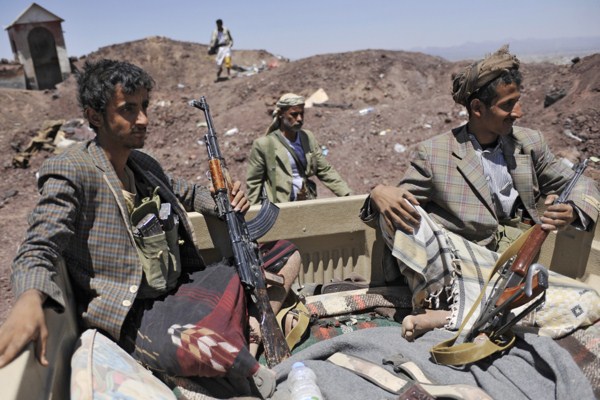It is still too soon to know what the Sept. 21 takeover of Yemen’s capital, Sanaa, by a group known as the Houthis will mean for the country’s future and its internationally backed political transition. But in a matter of days, the Houthis have redrawn Yemen’s political map far more radically than the 2011 uprising that led to the ouster of former President Ali Abdullah Saleh after 33 years in power.
So quickly did the Houthis rout tribal and Sunni Islamist militias and a military unit loyal to one of their fiercest rivals before signing a peace deal on extremely favorable terms that many Yemenis have not yet fully awoken to the new reality in Sanaa. Despite a clause in the agreement that called for their withdrawal, the Houthis’ leader, Abdel-Malek al-Houthi, has said that his men will not leave the capital until the security services—weak, divided, either shell-shocked by or complicit in the Houthi advance—are ready to fight al-Qaida.
Houthi fighters now stand alongside policemen and soldiers across the capital, guarding government buildings and manning checkpoints. Maj. Gen. Ali Mohsen al-Ahmar, a conservative Sunni commander once seen as one of the most powerful men in Yemen and the Houthis’ chief adversary during six years of war between 2004 and 2010, has fled the country, reportedly for Saudi Arabia. His loyalists melted in the face of the Houthi assault. As part of the peace agreement, endorsed by President Abed Rabbu Mansour Hadi, the Houthis will have a say in the selection of a new prime minister and will have seats in a new Cabinet. They have also forced a 25 percent reduction in the price of fuel.

